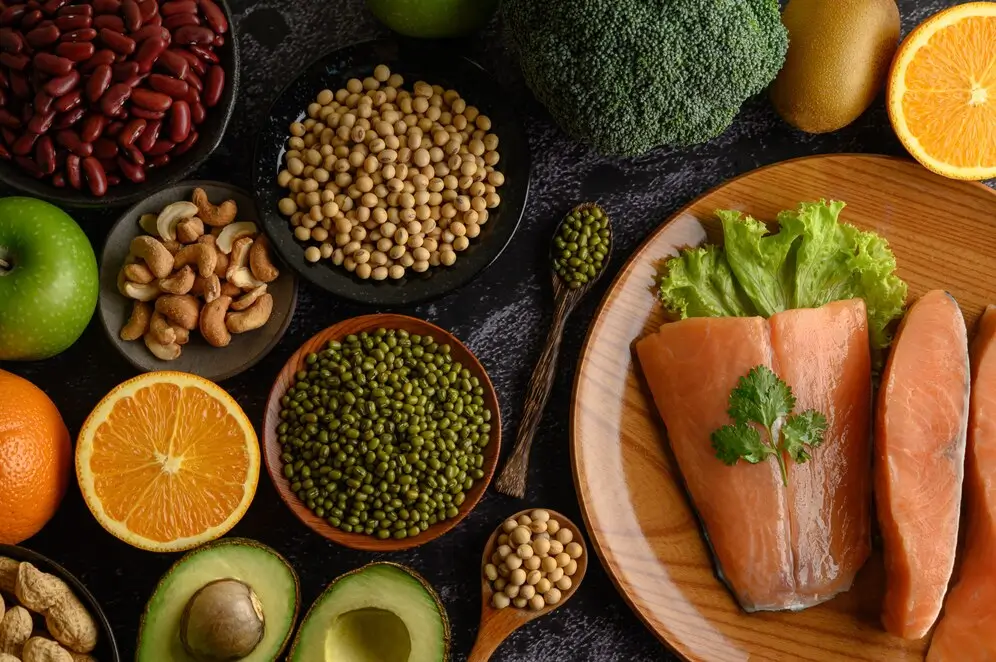Unveiling The Bounty Of Nutrient-Rich Foods: A Guide To Enhancing Your Well-Being
Table of Contents
In the pursuit of a healthy and balanced lifestyle, the significance of nutrient-rich foods cannot be overstated. These foods serve as the building blocks for optimal health, providing the body with essential vitamins, minerals, antioxidants, and other vital nutrients necessary for its proper functioning. In this comprehensive guide, we will explore a diverse array of Nutrient-Rich foods that can contribute to your overall well-being.
1. Leafy Greens:
Leafy greens are nutritional powerhouses, packed with vitamins, minerals, and fiber. Spinach, kale, Swiss chard, and collard greens are excellent choices.
Rich in folate, vitamin K, and antioxidants, leafy greens support bone health, blood clotting, and provide protection against oxidative stress.
2. Berries:
Berries, such as blueberries, strawberries, raspberries, and blackberries, are not only delicious but also brimming with antioxidants, vitamins, and fiber.
The vibrant colors of berries indicate the presence of phytochemicals, which have been linked to reduced inflammation and improved cognitive function.
3. Nuts and Seeds:
Nuts and seeds are nutrient-dense snacks that offer a wealth of health benefits. Almonds, walnuts, chia seeds, and flaxseeds are rich in omega-3 fatty acids, fiber, and various vitamins and minerals.
These foods are associated with heart health, brain function, and weight management.
4. Fatty Fish:
Fatty fish like salmon, mackerel, and sardines are abundant sources of omega-3 fatty acids, which play a crucial role in brain health and cardiovascular function.
Additionally, these fish are high in protein, vitamins D and B12, and minerals such as selenium.
5. Whole Grains:
Whole grains, including quinoa, brown rice, oats, and barley, are nutrient-rich alternatives to refined grains. They provide essential nutrients such as fiber, B vitamins, iron, and magnesium.
Consuming whole grains has been linked to a reduced risk of chronic diseases like heart disease and type 2 diabetes.
6. Greek Yogurt:
Greek yogurt is an excellent source of protein, probiotics, and essential nutrients like calcium and vitamin B12.
Probiotics contribute to a healthy gut microbiome, promoting digestive health and overall well-being.
7. Eggs:
Eggs are a nutritional powerhouse, containing high-quality protein, vitamins, and minerals. They are particularly rich in choline, a nutrient important for brain health and development.
Contrary to past misconceptions, moderate egg consumption is associated with various health benefits.
8. Colorful Vegetables:
Vegetables of different colors offer a spectrum of nutrients. Carrots, sweet potatoes, bell peppers, and tomatoes are rich in vitamins A and C, antioxidants, and fiber.
These vegetables support vision, immune function, and skin health.
9. Legumes:
Beans, lentils, and chickpeas are excellent sources of plant-based protein, fiber, and a variety of vitamins and minerals.
Eating legumes improves heart health, aids in weight management, and helps control blood sugar
10. Lean Proteins:
Lean protein sources like lean meats, poultry, tofu, and tempeh are essential for muscle development, immune function, and overall health. They provide high-quality protein, along with iron, zinc, and B vitamins.
Conclusion:
Incorporating a variety of nutrient-rich foods into your diet is a key strategy for promoting overall health and well-being.
By focusing on a colorful and diverse array of fruits, vegetables, whole grains, lean proteins, and other nutrient-dense options, you can ensure that your body receives the essential components it needs to thrive.
Making informed and conscious food choices is a powerful step towards achieving and maintaining a healthy and balanced lifestyle.

